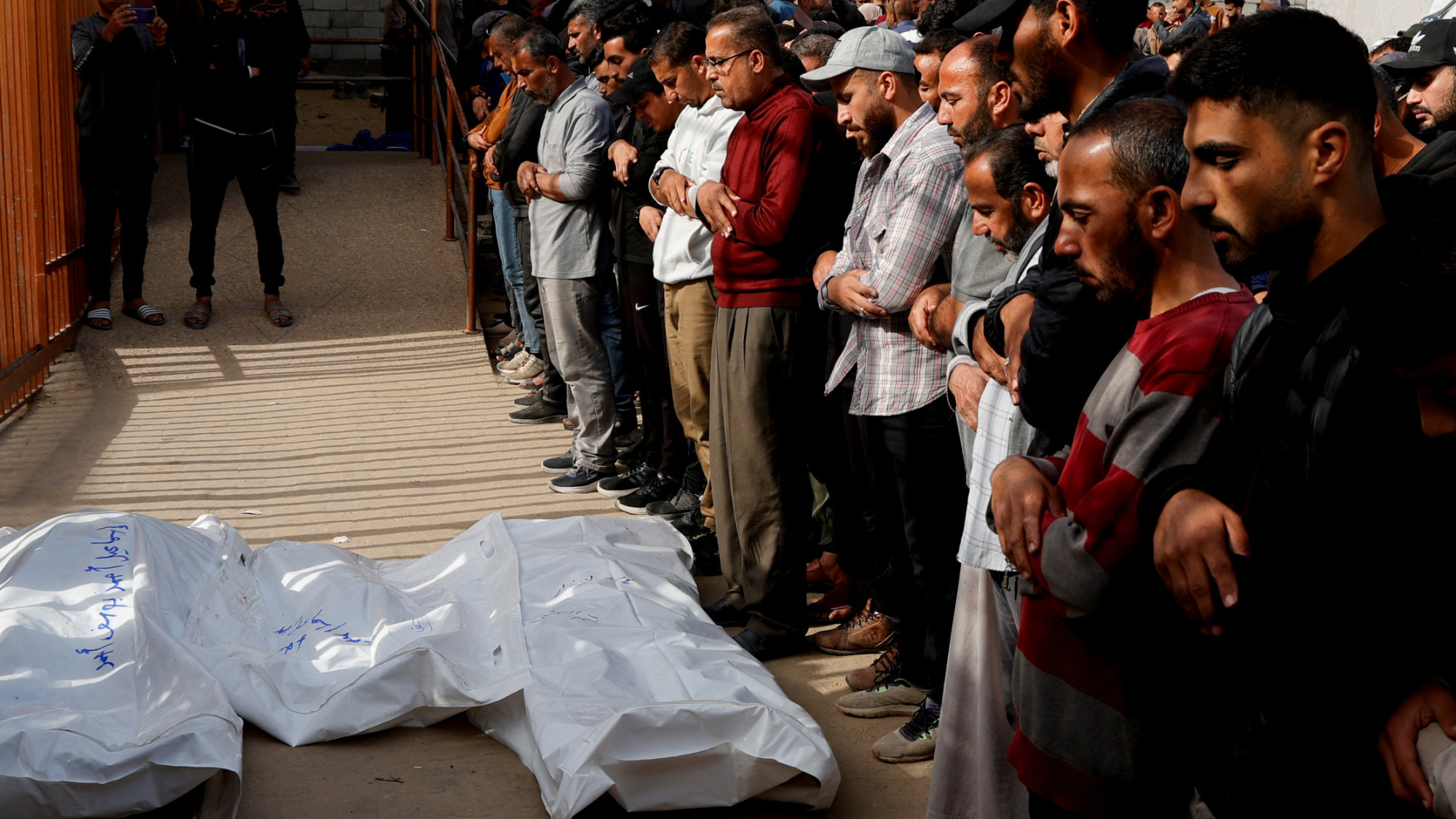Witness to media tent bombing: We did everything to save Mansour

Editor’s note: The following personal account of Palestinian journalist and MEE contributor Ahmed Aziz, who was in Khan Younis at the scene of the Israeli attack on a journalist tent, was told to Lubna Masarwa. It has been edited for brevity and clarity.
We were in the tents around midnight when a strike hit one of the tents. Inside were journalists Hassan Islayeh and Ahmed Mansour; Mansour was working the night shift as an editor at Palestine Today.
Journalist Hilmi al-Faqawi was asleep at the time. Faqawi works in social media for Palestine Today. In that moment, Islayeh’s phone was struck by a direct bomb.
Islayeh went outside, but he was hit with shrapnel in his face, and the fingers on his right hand were severed. At the same time, shrapnel struck Faqawi in the chest, stomach and face.
Given the situation, we tried to put out the intense fire in the tent which was exacerbated by the flammable nylon and sponge material.
New MEE newsletter: Jerusalem Dispatch
Sign up to get the latest insights and analysis on Israel-Palestine, alongside Turkey Unpacked and other MEE newsletters
Another piece of shrapnel hit the tent in front of us, belonging to Russia Today (RT). It struck a gas cylinder. Although the cylinder was empty, the remaining gas inside created a foggy atmosphere.
Because of the fog, we tried to wake the men and check on them. Our colleague Ehab al-Bourdaineh was hit by shrapnel in the back of his head, which exited through the side of his right eye. He works as a photographer for RT.
Yousef al-Khazindar, who often naps where the journalists stay, was also there. Some other journalists, including Abdullah al-Attar, were hit by shrapnel in the spleen, and began bleeding heavily. Mohammed Fayeq was hit in the left hand.
The men did everything they could to get Mansour out of the flames, but the conditions were impossible. They tried desperately to save him, but it was not possible.
Critical situation
Chaos ensued, partly due to the exhaustion from covering the Naffar massacre in Khan Younis, where nine people were martyred earlier in the day.
This left the men confused, and they struggled to comprehend what was happening. They even forgot how to administer first aid, and were unsure of what to do.
They began taking the wounded to Nasser Hospital on foot, as it was nearby.
Once at Nasser Hospital, it became clear who was in a critical condition.
Bourdaineh is still in intermediate care and remains in a serious condition.
Islayeh, a prominent journalist in Gaza, suffered severe injuries. His right hand was sliced, and he has shrapnel wounds in his skull and leg.
Mansour, who was burned, was initially in the burn care department in critical condition. On Tuesday, he succumbed to his wounds.
Shattered dreams
On Monday, we held the funeral for Faqawi, who worked in social media for Palestine Today.
It had been only a few days since he decided to join me in covering funeral processions and conducting interviews.
He was so proud of himself for filming a video that went viral just the next day.
"I am less experienced than you, but I will become more famous," he bragged to me.
He told me he wanted to "work and work and work" and dreamed about working for an international news agency.
'I steer clear of making small talk with journalists around me because I can’t bear the thought of losing another friend'
- Ahmed Aziz
Mansour, whom I met on 10 October 2023, three days after the war began, had a daughter and a son, Wissam, who he would visit in the al-Amal neighbourhood daily.
He hosted many of his displaced relatives at his home.
During the first three months of the war, we worked together for long hours, sometimes spending 13 hours a day in the same place, and enduring hunger together.
He was kind, sweet and always willing to help.
He was a handsome man who always took care of himself. He always trimmed his beard and dressed neatly.
Had he survived, he wouldn’t have been able to live with the extent of his burns. It was heartbreaking to see him in the hospital.
It’s difficult to look at the bicycle he used to ride, and the tent where he stayed.
For their memory
I’m exhausted. It’s been over a year and a half now. I never imagined my journalism career would be like this.
I’ve lost so many friends and colleagues, people I’ve known for over 10 years.
I now avoid staying in media tents. I steer clear of making small talk with journalists around me because I can’t bear the thought of losing another friend.
People can’t begin to imagine what we’re going through, daily bombing and loss.
I’m not made of steel. I am internally shattered.
I work every day just to avoid staying at home, because that would destroy me.
I’d rather be martyred on the field.
Although I'm wounded, I can’t stop working. For my colleagues and for their memory.
middleeasteye.net